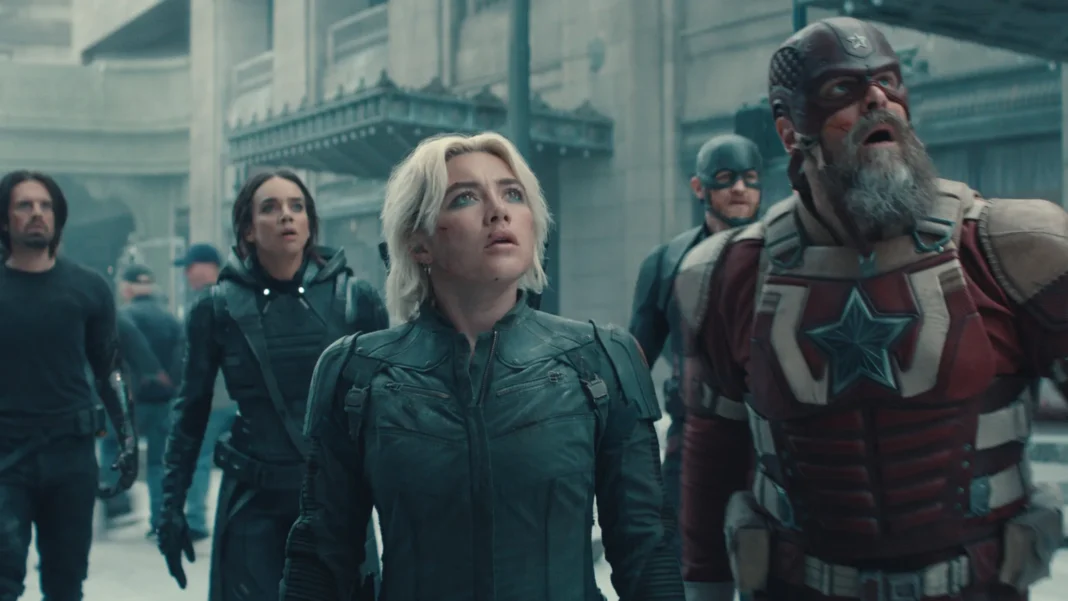They might not wear the shiny suits or carry the legacy of Earth’s mightiest heroes, but Marvel’s Thunderbolts are anything but ordinary—and audiences are paying attention. With a hefty $31.5 million debut across Friday and preview screenings from 4,330 theaters, the offbeat superhero ensemble marks a bold pivot for Marvel Studios. It’s not just another franchise launch; it’s a calculated gamble blending underdog energy with box office ambition. The question now: is the MCU’s new phase finally finding its footing?
It’s no secret the Marvel brand has faced turbulence in recent years—think declining audience enthusiasm, mixed reviews, and the daunting task of evolving post-Endgame. Enter Thunderbolts—a ragtag crew of reformed villains and morally gray antiheroes that includes Florence Pugh’s Yelena Belova, David Harbour’s Red Guardian, Sebastian Stan’s Winter Soldier, and the ever-surprising Julia Louis-Dreyfus. Directed by Jake Schreier, the film strips down the glossy grandeur in favor of gritty camaraderie and subtle wit, serving something fresh to a genre on the verge of fatigue.
While projections aim between $70 and $75 million for the opening weekend, it’s still one of the lower debuts in Marvel history. Compared to Black Widow’s $80 million launch or the groundbreaking $94 million opening of Guardians of the Galaxy, the numbers speak to a new, sobered reality. Superhero fatigue? Perhaps. But audience polls, including an “A-” from CinemaScore, suggest Thunderbolts may have legs—even if its wingspan isn’t quite Avenger-sized.
Marvel’s pivot to ensemble oddballs could be a strategic move rooted in the cultural moment. In a post-pandemic cinematic landscape where authenticity trumps perfection, audiences are craving realness—even in their fantasy. Misfit teams like those in Thunderbolts resonate with an era that values nuance over archetype, redemption over righteousness. The film’s cast of flawed yet compelling characters mirrors a growing appetite for complexity in hero narratives.
This weekend’s box office landscape also speaks volumes. Ryan Coogler’s Sinners, a genre-defying vampire thriller, continues its impressive hold, pulling $9.5 million on Friday despite ceding premium screens to Thunderbolts. With earnings tripling its $48 million opening, Sinners underscores a broader industry trend—quality storytelling paired with cultural edge can outlast flashier fare. Meanwhile, Minecraft: The Movie marches toward the $400 million mark, fueled by inventive “Block Party Edition” screenings that gamify the cinema experience—further proof that studios must now engage beyond the screen.
Still, not all players are winning. The Accountant 2 and Sony’s Until Dawn struggle to maintain momentum, reinforcing the notion that theatrical success now demands either bold reinvention or deep fan connection.
Back to Thunderbolts: its success isn’t just about dollars. It’s a litmus test for the future of the Marvel Cinematic Universe. Can a brand built on gods and geniuses thrive by spotlighting the broken and the brave? If its strong audience reception and early critical praise are any indication, this might just be Marvel’s smartest pivot yet. As the studio recalibrates its cinematic compass, Thunderbolts offers a glimpse at a grittier, more grounded future—one where imperfections are the new superpowers.
The story’s still unfolding, but one thing is clear: in 2025, the age of pristine heroes may be giving way to something far more human—and far more intriguing.


